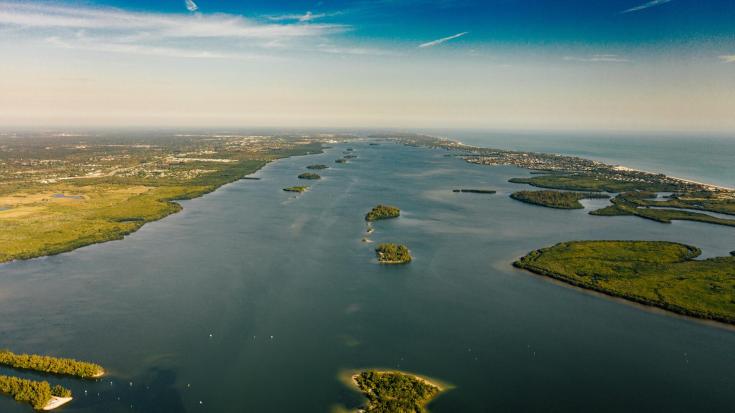Supporting the low-carbon transition in Europe’s islands

Islands face a number of unique challenges in the low-carbon transition, as a result of their geographic and environmental conditions. Many islands are dependent on decentralised fossil fuel generation, whilst smaller populations hamper the benefits of economies of scale, resulting in high energy costs. Additionally, many islands are economically less developed than other regions and highly dependent on seasonal tourism and leisure industries. At the same time, however, islands have a number of opportunities, including an abundance of renewable resources, strong communities, and clear system boundaries.
Recognising these challenges and opportunities, the European Union has launched both a Political Declaration (2017) and an Initiative (2018) to support Clean Energy for EU Islands and put the issue on the political agenda. The same year also saw the launch of the RESOR project (Supporting energy efficiency and renewable energy in European islands and remote regions), funded by Interreg Europe and under the leadership of the Vice-Ministry of the Fight Against Climate Change of the Government of the Canary Islands (Spain). The project targets improvements in seven Operational Programmes for the Canaries, Réunion and Martinique (France), the Azores and Madeira (Portugal), Cyprus and Epirus (Greece), focusing in particular on businesses in the secondary and tertiary sectors.
Sharing what works
Through the RESOR partnership, the island regions have exchanged experiences and practices and engaged their regional stakeholders to tackle their common challenges and raise awareness of sustainable energy solutions. Identified practices cover different stages in project development, from initial identification of opportunities, through financing and implementation, providing experiences for islands of differing maturity in sustainable energy development. The practices reflect the needs of island communities, being small in scale, but effectively targeted at providing support and creating new markets.
- Energy audits funded through green taxation are to be implemented to improve the efficiency of the Hotel sector in Nicosia municipality (Cyprus). Having committed to the Covenant of Mayors, Nicosia sought ways to kick-start widespread efficiency improvements in its touristic sector and introduced an increase of 5% on hotel accommodation tax (per room, per night) to be paid by customers. The increase was planned for 2019-2021 and forecast to raise around 7,000 EUR per year which could be paid into a newly established revolving fund and then used to fund audits in all fifteen Nicosia hotels within nine years. Although the COVID pandemic has postponed the implementation of the action, it is expected to start once the pandemic has ceased, and the principle could be applied to many touristic cities or towns as the economy opens up. Additional information is available from the Interreg Mediterranean LOCAL4GREEN project.
- ProEnergia is a grant mechanism in the Azores for supporting small scale renewable energy generation and storage, consisting of non-refundable grants which are funded by the Azorean government. The grant covers 25% of eligible installation costs for renewable electricity and heating and 35% for water heating, with bonuses for some islands of 5, 10 or 12%, reflecting different financial needs. The minimum investment considered for support is 500 EUR, and the maximum possible grant is 4,000 EUR, or up to 20,000 EUR for non-profit organisations. In 2020 the mechanism subsidised 818 applications comprising 895 clean energy production technologies, primarily heat pumps for water heating, replacing fossil-fuel predecessors. At a total cost to the Azores government of 684,000 EUR it stimulated more than 2.03 million EUR of investment. Additional information is available via the Azores government website.
- Madeira Biomass Energy is a project for creating a biomass energy market to make use of forestry production and forest waste management, and correspondingly, reduce fossil fuel consumption. Under the project, an Energy Service Company installed biomass boilers in three hotels through Energy Performance Contracts (EPC). Whilst initially fueled with imported wood chips, the ESCO is now constructing the island’s first biomass plant to process domestic wood wastes, funded by the European Regional Development Fund under the EMPREENDER (Entrepreneur) 2020 incentive system. The project has created five full time jobs as well as providing income for the island’s forestry businesses.
Improving regional policy frameworks
The RESOR exchange will result in seven Action Plans to be implemented by the end of 2022, however, the project has already reached its first policy change in the Operational Programme for Azores 2014-2020, which was revised in December 2018.
“Close contact with the Managing Authority of the Azores 2020 Operational Program already existed but on a very sporadic and formal level. With RESOR, there has been an approach between these two institutions that would not have been possible otherwise,” explained Guilherme de Oliveira e Silva, Technical Advisor for the Azorean Directorate of Energy.
Through stakeholder engagement activities and field visits, it became evident that the Operational Programme's use of financial instruments was not adequate for an island economy predominantly made up of SMEs. Financial instruments were overly complicated for them to access, with high participation costs and bureaucracy – applicants were required to implement an expensive energy audit before applying for funds, which was made especially challenging because of a lack of qualified energy auditors on the archipelago. Additionally, it was revealed that SMEs had low awareness of the available funding and needed support with energy literacy and technical support.
In response, the Operational Programme was amended to shift available financing towards refundable and non-refundable grants and to make funds available for awareness raising activities. The first calls under the revised Operational Programme were launched in December 2018 with call texts specifically focused on energy efficiency in industry and SMEs. A second call followed in February 2020. As well as the Operational Programme, RESOR triggered changes to the ProEnergia grants, reducing bureaucracy, widening its scope and balancing out its bonuses.
For more information on the RESOR project, visit the project website. Its Action Plans will shortly be available in the project library.
